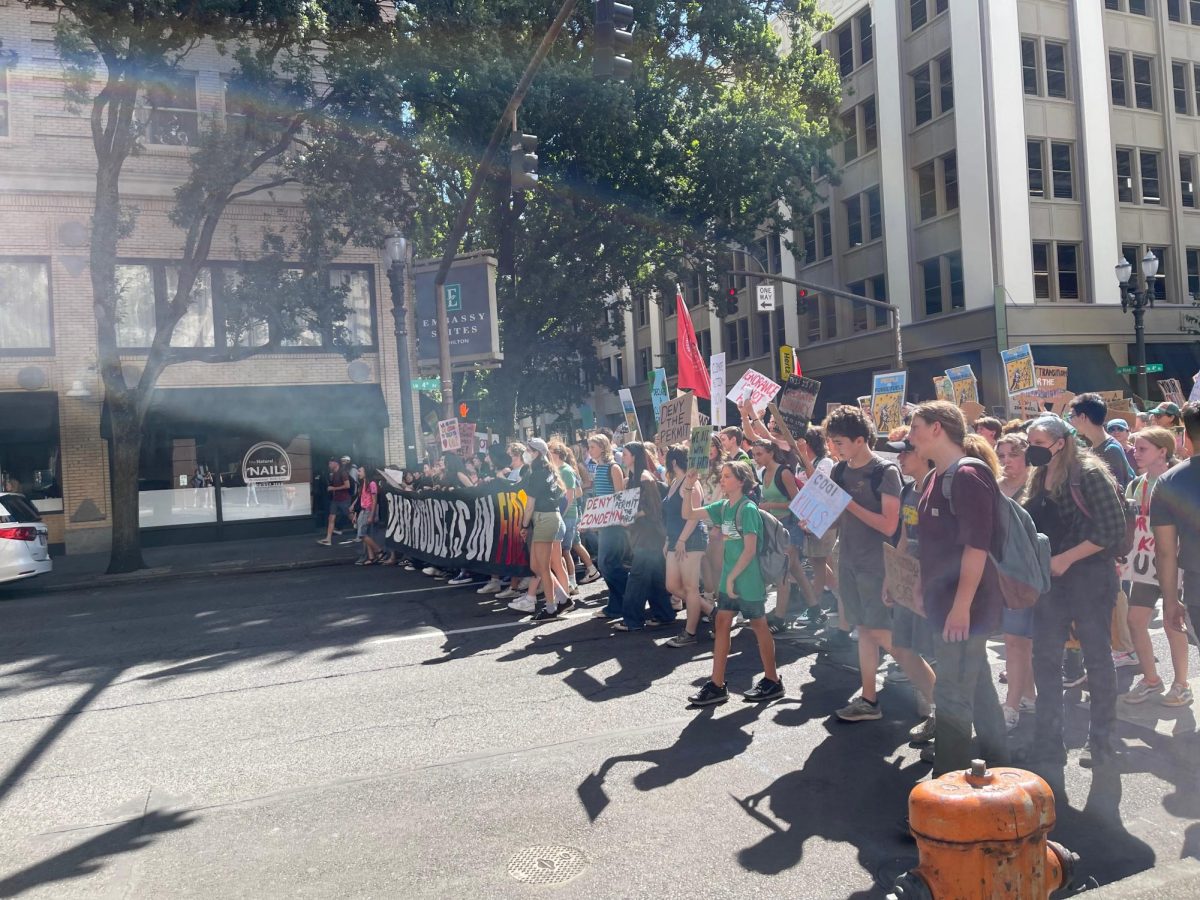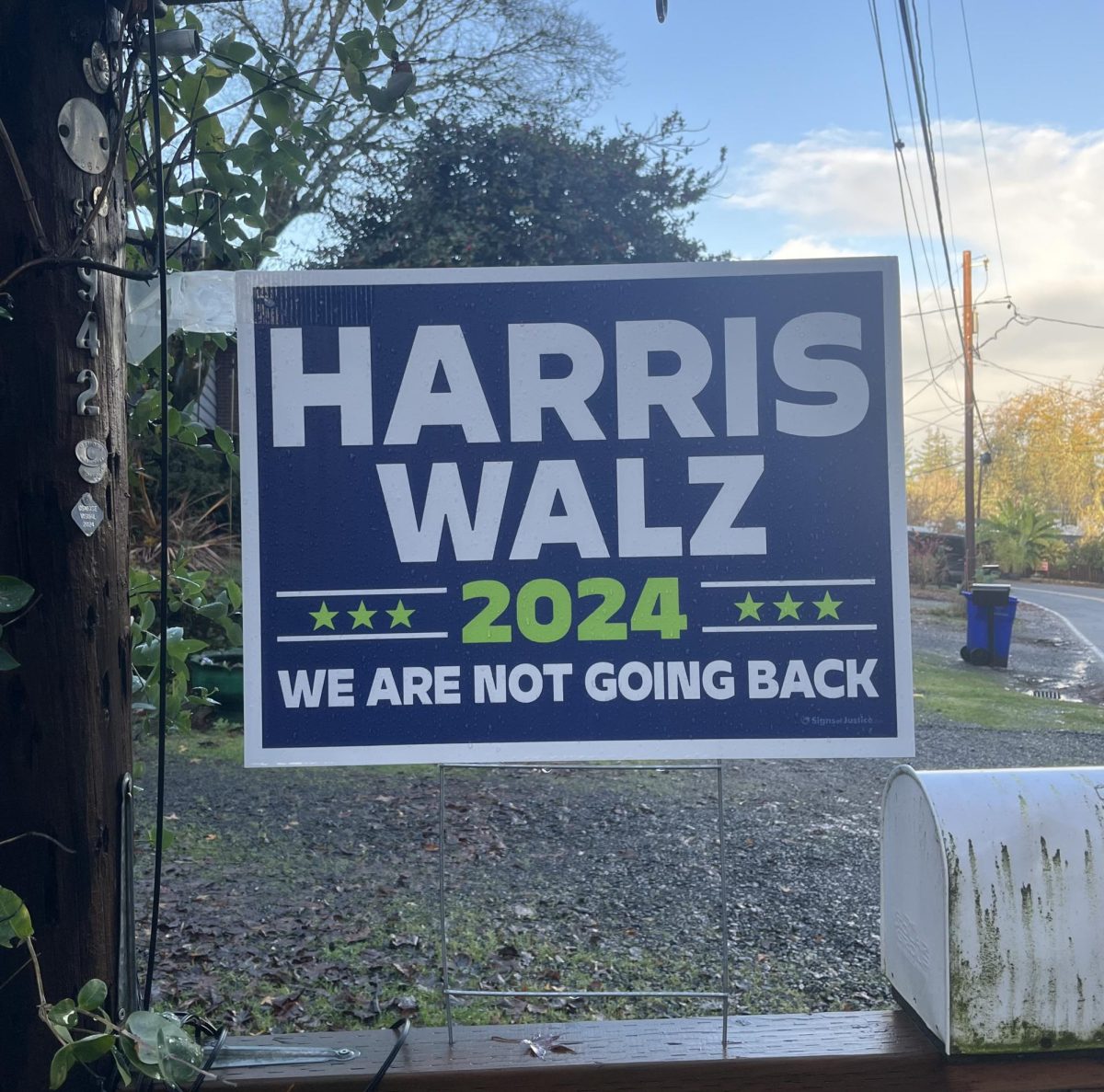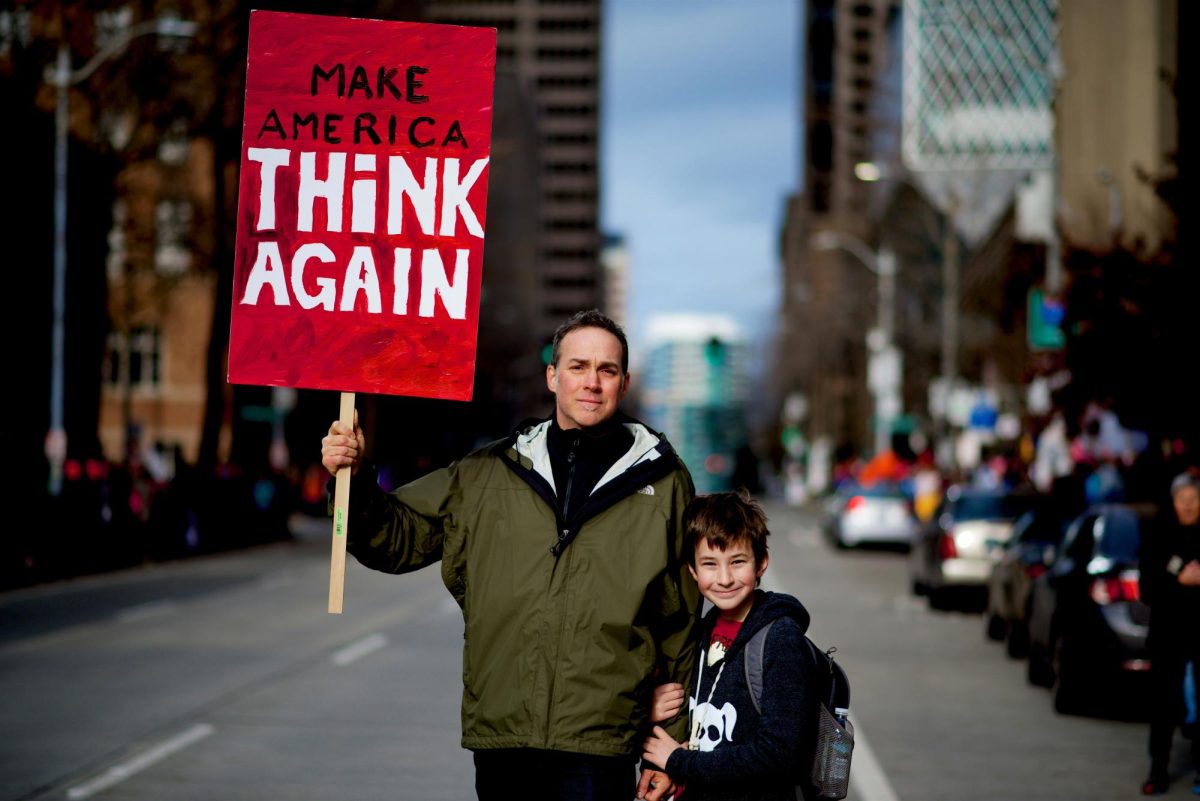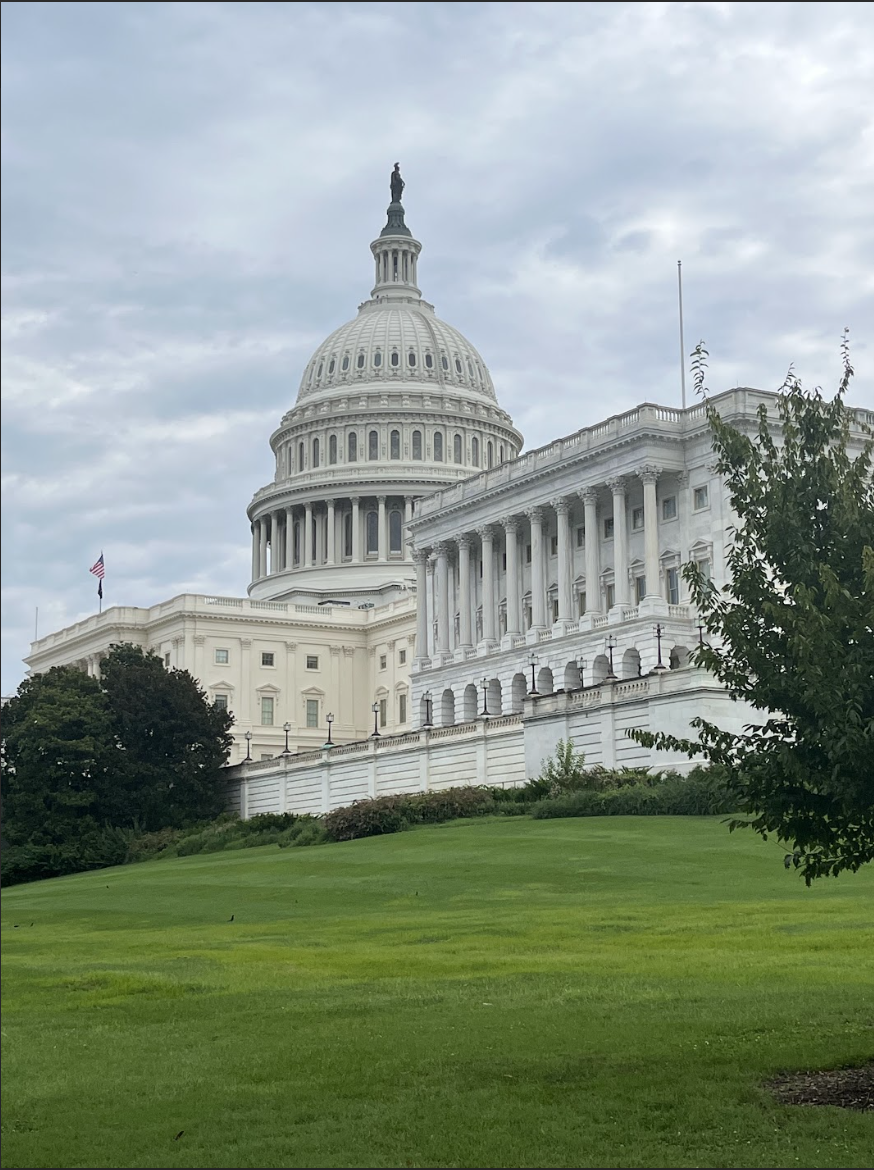Last Friday on Sept. 15, students from a range of schools in the greater Portland area crowded the streets as part of the recurring Youth Climate Strike. This year, organizers assembled at city hall to feature the student leaders and activists on the megaphone. They then proceeded to march a loop of downtown from the Waterfront through Pioneer Place. Previous years have seen the strike march across the Morrison and Steel Bridges onto the city’s east side.
The strike is a solely student led movement, made up of representatives from each PPS high school coordinating to educate and mobilize. The organization has been around since 2020 and has accumulated significant turnouts and press coverage. Their influence has pushed local office-holders such as State Representative Kahn Pham and Multnomah County Commissioner Lori Steggman to join in signing onto their climate pledge.
Attendance at these strikes has consistently amassed the size of more than 2 street blocks, which the strike committee compensates for by printing banners, practicing chants, commissioning bikers to block off traffic and dispensing protest signs. While a few students participated to simply skip class, many in the march passionately chant and hoist signs with bright imagery or clever slogans.
Even with the large numbers, the climate strike is challenging a global environmental crisis that requires reform to the world’s largest political and economic institutions. As a local group, what is the Portland Youth Climate Strike specifically seeking to change?
An ongoing demand frequently repeated by the strikers is ‘deny the permit, condemn the pipeline’. This refers to the Portland operations of Zenith Energy, a fossil fuel corporation that holds its transloading facility in the city’s railyard. Annually, Zenith transports roughly 375 million gallons of crude oil from rail cars to shipping containers, increasing the risk of spills and explosions.
More concerning is the fact that their transportation site sits on unstable infill land, which is projected to collapse during the upcoming Cascadia Earthquake. This would put millions of gallons of oil into the Willamette River, reversing years of water cleanup.
“They’re not sustainable and they’re not taking the environment into account. They’ve been doing a lot of damage and reversing a lot of the progress that we’ve made over the last couple of years.” said Adelai Jeffrey, a member of PYCS logistics team.
Zenith Energy’s land-use permit was denied by the city in August 2021 under similar concerns, yet after a lawsuit by the company they were allowed to continue operations. Since then, local leaders such as commissioner Carmen Rubio have come to the corporation’s defense. In February Rubio spoke optimistically of Zenith, stating their commitments were “the progress we’re looking for – and that we expect to continue.”
Zenith received a land-use permit from the city to continue their operations in 2023, under the agreement that their crude oil transport would be phased out by 2028. This agreement comes after Zenith has been moving millions of gallons of oil every year. Their spokesmen have pointed to roughly a third of their product being ‘renewable energy’, which is predominantly renewable diesel. Renewable diesel is extracted from fats and vegetable oils, and while still emitting carbon when used, it is less than half of the amount emitted by regular diesel.
A chant frequently shouted by the strike’s attendees included “Tina Kotek listen up! All the youth have risen up!” Governor Tina Kotek, who was elected last fall after campaigning on green policy promises, was a main target of protest. Among her priorities was to decrease methane gas usage in homes, invest further in public transportation and promote zero-emission vehicles.
Above all, Kotek has made homelessness her key legislative priority since assuming office. Nonetheless, she has made modest environmental reforms, including signing two bills in May to decrease plastic use and undegradable chemicals found within. Kotek has also committed to using federal dollars from the Infrastructure Bill and Inflation Reduction Act for climate investments.
“She’s not taking as much action as I think that she campaigned for. But I’m hoping that that trend will continue and she’ll change in the picture.” said Jeffrey.
The Portland Youth Climate Strike demands Kotek declare a statewide climate emergency, similar to the proclamation she ordered on homelessness her first day of office. Climate activists believe this will give more power to action. It would make Oregon the second state to make such a declaration, following Hawaii in 2021.
“If she declares a state of climate emergency, it also helps speed up certain processes and gives more resources. So it just helps a lot more when trying to make more changes.” said Jeffrey.
If a state of emergency is declared by Kotek, she will have complete authority of state agencies and police power. A declaration will set expectations to state agencies to use all available resources to aid local communities and “alleviate disaster conditions,” as an explanation states.
“If Kotek declares a state climate emergency, other states can see that, we would be the second state to do that. And other states will fall as soon and it will be a snowball effect. At least that’s what I’m hoping for, and it all has to start somewhere.” said Jeffrey.
Even faced with the global crisis, Portland’s strikers see the grassroot levels as the best place to start statewide, national and international progress.






















